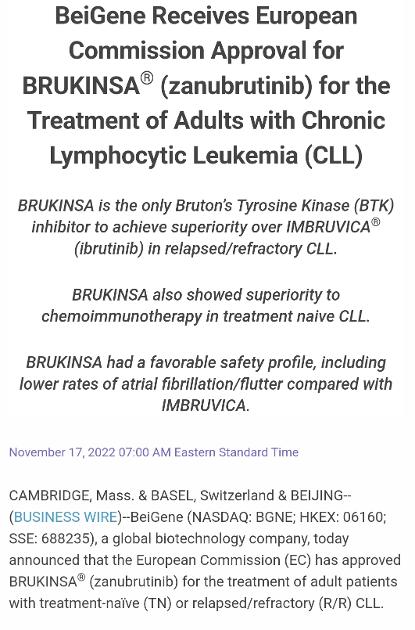The EC approval is based on positive results from two Phase 3 clinical trials: SEQUOIA (NCT03336333), in patients with previously untreated CLL, and ALPINE (NCT03734016), in patients with R/R CLL. In these two trials, BRUKINSA demonstrated superior efficacy versus either bendamustine plus rituximab (B+R) or ibrutinib in first-line or R/R CLL, respectively. BRUKINSA is the only BTKi to achieve superiority versus ibrutinib in R/R CLL, as assessed by independent review committee, with an overall response rate (ORR) of 80.4% vs 72.9% (p=0.0264).i Additionally, more BRUKINSA patients than ibrutinib patients had a sustained response at 1 year with rates of 90% vs 78%.i The adverse events within the two trials were consistent with the overall safety profile of BRUKINSA. Subsequent to the regulatory submission, BeiGene announced topline results of the final PFS analysis of the head-to-head ALPINE trial, in which BRUKINSA demonstrated superior PFS compared with ibrutinib in patients with R/R CLL.
More

 . At least we are looking a median time of 5 years before resistance develops on the approved, covalent bonding BTKisl, with some ibrutinib trial participants entering their second decade of maintenance management now.
. At least we are looking a median time of 5 years before resistance develops on the approved, covalent bonding BTKisl, with some ibrutinib trial participants entering their second decade of maintenance management now.